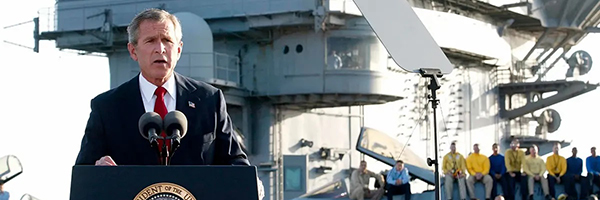Report: Over 4.5 Million People Killed In Post 9/11 Wars
A blank-check legislation signed into law in 2001 has allowed the Pentagon to launch more than 40 military interventions in at least 22 countries without congressional approval.
A new study from the Costs of War project at Brown University’s Watson Institute estimates that over 4.5 million people have died from wars launched by the west in the aftermath of the 11 September 2001 attacks.
The study estimates that between 906,000 to 937,000 people have been killed as a direct result of wars in Afghanistan, Iraq, Pakistan, Syria, Yemen, Libya, and Somalia.
“These countries have experienced the most violent wars in which the US government has been involved in the name of counterterrorism since 2001,” the report highlights.
Moreover, 3.6 million people are estimated to have died indirectly from the effects of western wars, including economic collapse, food insecurity, destruction of public health facilities, environmental contamination, and recurring violence.
However, the researchers go on to stress that “the true impacts [of war] are so vast and complex that they are unquantifiable and thus [the report] does not generate a precise mortality figure, but instead provides a reasonable and conservative estimate.”
The study also points to other factors that exacerbate the crisis in war-torn nations, including “natural disasters, climate chaos, and forced displacement.”
It also highlights that women and children are the most vulnerable to the effects of war, with researchers calculating that over 7.6 million children under five suffer from acute malnutrition in Afghanistan, Iraq, Syria, Yemen, and Somalia.
“The post-9/11 wars have occurred in countries whose populations are largely Black and brown and are often waged by countries with histories of white supremacism and Islamophobia,” the report adds.
Costs of War co-director and author of the report, Stephanie Savell, said in a statement on 16 May that the US is responsible for repairing the damage done by its forever wars.
“The United States government, while not solely responsible for the damage, has a significant obligation to invest in humanitarian assistance and reconstruction in post-9/11 war zones,” Savell said, adding that Washington “could do far more than it currently is to act on this responsibility.”
The Costs of War study comes two months after the US Senate overwhelmingly voted against repealing the the 2001 Authorization for Use of Military Force (AUMF). This sweeping, blank-check legislation was signed into law by former president George W. Bush to target the alleged perpetrators of the 11 September attacks.
Just days after the failed attempt to repeal the 2001 AUMF, the US House of Representatives struck down a resolution that sought to end the US army’s illegal occupation of Syria.
According to the Congressional Research Service, the 2001 AUMF has been used to justify more than 40 military interventions in at least 22 countries without the approval of Congress.
In the years after the 11 September attacks, the US Congress also approved so-called ‘security cooperation authorities’ (SCA), which have allowed the Pentagon to covertly deploy troops and wage secret wars in dozens of countries across the globe.
According to a report released last November by the New York University School of Law’s Brennan Center for Justice, the SCA allows the Pentagon to “train and equip foreign forces anywhere in the world” and to “provide support to foreign forces, paramilitaries, and private individuals who are in turn supporting US counterterrorism operations,” with a spending limit of $100,000,000 per fiscal year.
“Researchers and reporters uncovered [SCA] programs not only in Afghanistan and Iraq, but also in Cameroon, Egypt, Kenya, Lebanon, Libya, Mali, Mauritania, Niger, Nigeria, Somalia, Syria, Tunisia, and Yemen,” the Brennan Center for Justice highlights.
Christopher C. Miller, former acting head of the Pentagon, said in his memoir released earlier this year that the US should be held accountable for the failed wars in Iraq and Afghanistan.
“The US military-industrial complex has grown into a hydra-headed monster with almost no controls on the American war machine,” Miller writes.
Late last year, Washington approved a record-setting $858 billion defense budget for 2023, $45 billion higher than the figure proposed by President Joe Biden and an $80 billion increase from last year’s budget.
The hike alone is higher than the entire military budget of every country in the world, except for China, whose defense spending bill currently stands at $293 billion.
Washington’s outrageous spending on defense comes despite the fact the Pentagon has never passed a financial audit and is unable to account for trillions in assets.
According to the Institute for Policy Studies, the average US taxpayer paid $1,087 just for Pentagon contractors in 2022.

